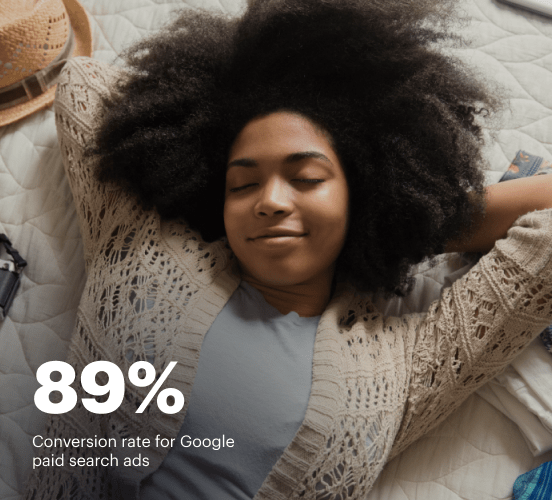How Canva vs. Webflow vs. Instapage stack up against each other
Compare Instapage with Canva and Webflow to create high-converting landing pages. With personalization, optimization, and collaboration tools, Instapage helps you deliver experiences that drive results.
Get startedSee how Instapage stacks up against the competition
| Feature | Instapage | Other builders |
| Drag-and-Drop Tools | ||
| Conversion-optimized templates | ||
| Manual and AI-powered A/B Tests | ||
| AI content suggestions | ||
| Popups and sticky bars | ||
| Canvas and grid blocks | ||
| Reusable and global elements | ||
| Form and popup builders | ||
| Built-in Heatmaps | ||
| Central analytics dashboard | ||
| Ad-to-page personalization and collections | ||
| Contacts, lists, and email | ||
| Dedicated, full-service CRO experts | ||
| Enterprise-ready platform |
Leading the way in building high-performing landing pages





Why Instapage is the smarter choice for your campaigns
Get everything you need to build, scale, and optimize high-converting landing pages—without coding.
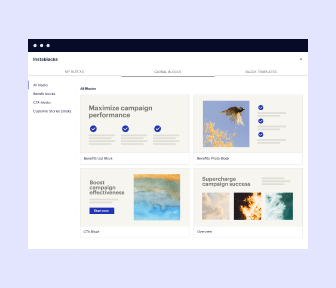
Easier page building without coding
Instapage offers a flexible and seamless page creation experience with a library of 500+ conversion-focused layouts, Instablocks®, a drag-and-drop builder, and AI content generation. With technologies like Thor Render Engine®, you can create on-brand, mobile-responsive landing pages that load quickly and start converting during initial visitor clicks.
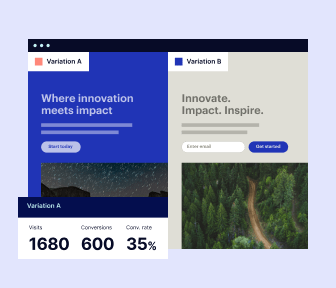
More insights — better results
Instapage lets you see in detail how each landing page experience and variation is performing so you can make targeted changes that boost page conversions. Use heatmaps for a better understanding of on-page activities, run A/B tests and AI-assisted experiments, and then track and evaluate results within robust analytics dashboards.
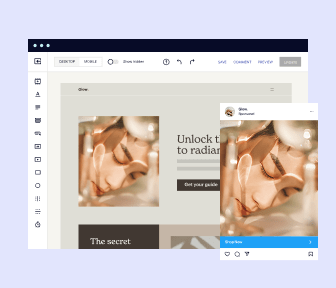
More personalized experiences
Instapage lets you quickly create high-performing landing pages tailored to each of your ad campaigns. Deliver personalized experiences for distinct audiences using dynamic text replacement. Effortlessly align specific advertisements to unique pages with AdMaps. Monitor audience-level metrics using our advanced data tools.
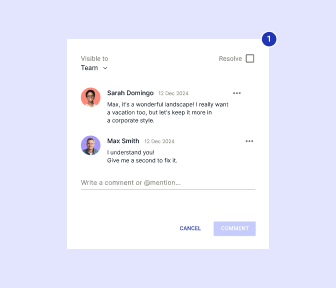
Built-in collaboration
Instapage collaboration capabilities bring your entire team together to speed up the process of landing page review, approval, and launch. No more frustrating and unnecessary revisions or edits scattered across emails. Provide instant feedback, conduct real-time page edits, and securely share your pages with outside stakeholders.
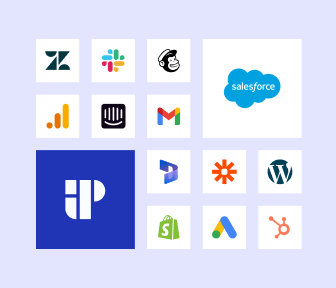
Free up time for your business
Invest time into business growth, not busy work. Launch landing pages faster with reusable forms and templates. Build once, reuse forever.
Explore all integrations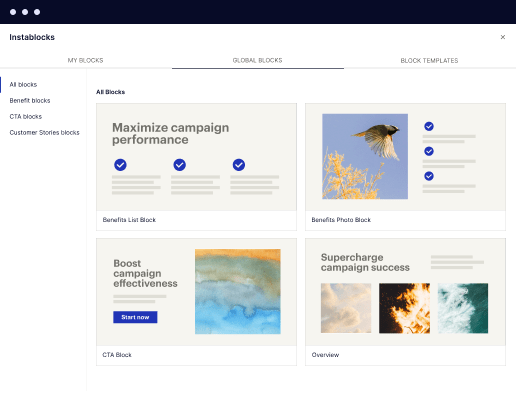
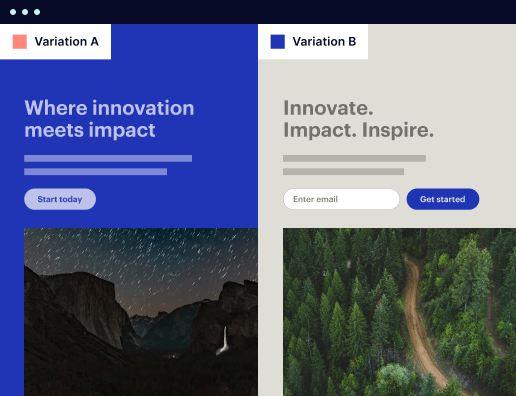
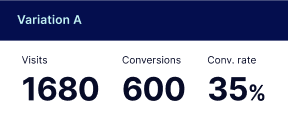
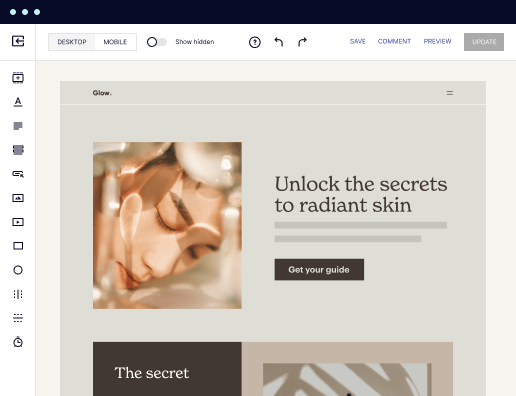

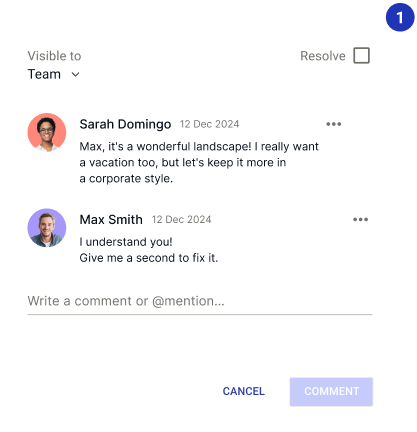
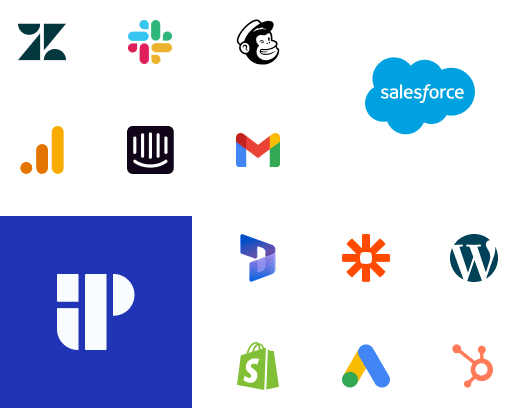
Easier page building without coding
Instapage offers a flexible and seamless page creation experience with a library of 500+ conversion-focused layouts, Instablocks®, a drag-and-drop builder, and AI content generation. With technologies like Thor Render Engine®, you can create on-brand, mobile-responsive landing pages that load quickly and start converting during initial visitor clicks.
More insights — better results
Instapage lets you see in detail how each landing page experience and variation is performing so you can make targeted changes that boost page conversions. Use heatmaps for a better understanding of on-page activities, run A/B tests and AI-assisted experiments, and then track and evaluate results within robust analytics dashboards.
More personalized experiences
Instapage lets you quickly create high-performing landing pages tailored to each of your ad campaigns. Deliver personalized experiences for distinct audiences using dynamic text replacement. Effortlessly align specific advertisements to unique pages with AdMaps. Monitor audience-level metrics using our advanced data tools.
Built-in collaboration
Instapage collaboration capabilities bring your entire team together to speed up the process of landing page review, approval, and launch. No more frustrating and unnecessary revisions or edits scattered across emails. Provide instant feedback, conduct real-time page edits, and securely share your pages with outside stakeholders.
Free up time for your business
Invest time into business growth, not busy work. Launch landing pages faster with reusable forms and templates. Build once, reuse forever.
Explore all integrationsGet started with Instapage in a few steps
-
Create your Instapage account
Start with Instapage by signing up via Google or your email. You'll get access to a free 14-day trial to discover Instapage capabilities. Feel free to cancel anytime during the 14-day trial if you decide that our product is not suitable for your business. -
Build and personalize your page
Create your first landing page from scratch or choose a template from 500+ customizable layouts. Use the drag-and-drop builder to add page elements, fonts, and backgrounds, refine content with AI, or add custom HTML, Javascript, and CSS. -
Review and make edits
Collaborate on page designs and streamline review processes. Invite your team members and stakeholders to review, edit, and provide feedback on your landing page. Collaborate knowing your page is confidential and only accessible to authorized users. -
Publish and track page performance
Publish your page to a domain or custom URL. Connect your pages to the ads you've created and track page performance within the analytics dashboard, run A/B tests and AI experiments, analyze results, and continuously optimize your landing page to maintain high conversions.
Instapage vs. Canva vs. Webflow – Which One Should You Choose?
Picking the right landing page builder can feel like assembling the ultimate marketing squad. Much like selecting the best lineup of superheroes, each tool offers unique powers that can elevate your digital strategy. With Instapage, marketers have a trusted sidekick to reduce costs, amplify conversions, and deliver tailor-made landing pages that foster brand loyalty and build customer trust. However, Canva and Webflow bring fresh perspectives and functionalities to the table, making the decision as exciting as a comic book showdown. Let's embark on a comprehensive exploration of these three platforms to discover which one stands tall as the champion in the world of landing pages.
Meet the Contestants: A Brief Overview
In one corner, we have Instapage, renowned for its unparalleled landing page customization and conversion tools. It's a favorite among marketers seeking efficiency without compromising creativity. In the opposite corner stands Canva, known for its user-friendly design features and aesthetic versatility, ideal for both novices and pros. Meanwhile, Webflow steps in as the robust powerhouse that brings together design, content management, and development in one seamless platform. Each contender comes with its distinct flair and capabilities, creating a friendly rivalry that encourages users to evaluate their specific needs and preferences. As we explore these platforms, remember that choosing the right tool hinges on your marketing goals and desired outcomes, so stay tuned for a side-by-side comparison.
Round One - Feature Showdown: Which Has the Best Offerings?
Template Selection and User-Friendliness: A Key Consideration
When comparing the features of these platforms, one has to look closely at available templates and the overall user experience. Canva dazzles with a colorful library of customizable templates that cater to various niches, making it a popular choice for those who prioritize aesthetics. Its drag-and-drop interface is remarkably intuitive, which aids users in crafting visually stunning landing pages quickly. Instapage, however, sets itself apart with a deep emphasis on conversion-focused design templates that facilitate user conversion through lead capturing features. This platform allows for extensive A/B testing, empowering marketers to refine their landing pages continuously based on direct feedback. Webflow leans toward more advanced users, offering a robust interface that requires a bit of a learning curve but rewards with endless customization potential. While all three platforms boast impressive features, they cater to different user bases, giving marketers plenty to consider.
Instapage: A Tailored Experience for Conversion Optimization
Instapage shines when it comes to delivering a customizable and conversion-optimized experience. Its array of powerful tools enables marketers to create landing pages that not only look good but are also strategically built to convert visitors into customers. With advanced A/B testing capabilities and easy integration with various marketing tools, Instapage focuses on helping users maximize their investment. The platform provides drag-and-drop functionality that simplifies the page creation process while offering in-depth analytics to track user behavior and conversion rates. Instapage empowers marketers to reduce costs, grow conversions, and deliver relevant landing page experiences, thus increasing brand trust and customer loyalty.
Round Two - The Need for Speed: Performance Analysis
Let’s set the stage for an engaging conversation about the speed and performance of each platform. Imagine browsing a beautifully designed website but waiting an eternity for it to load. Frustrating, right? The same holds true for landing pages; fast-loading pages are crucial for a positive user experience and higher conversion rates. In this round, we explore how swiftly each builder crafts high-performance landing pages, which is essential to keeping your audience engaged and satisfied.
Speed and Performance Advantages of Instapage
- Instapage optimizes its pages for fast loading speeds, ensuring visitors can access them without delay.
- The platform utilizes cloud hosting, which can handle high traffic loads effectively.
- Instapage provides automatic image optimization, further enhancing load times.
- Integrated analytics allow users to monitor performance and make necessary adjustments efficiently.
Speed and Performance Advantages of Canva
- Canva offers easy-to-use design features that allow for quick page creation with minimal lag.
- While templates are customizable, the images and elements are weighted, impacting loading times.
- The platform is primarily design-focused, which may affect performance from a conversion standpoint.
Speed and Performance Advantages of Webflow
- Webflow generates clean code, contributing to faster loading times compared to complex page builders.
- The system allows for custom hosting solutions to optimize performance based on user needs.
- With various design features, users can create lightweight pages without sacrificing quality.
- Empowered users can handle responsiveness, ensuring excellent load times across devices.
In terms of speed and performance, Instapage emerges as the top contender, equipped to deliver fast-loading landing pages that enhance user experience. While Canva and Webflow have their strengths, they offer more colorful visuals rather than optimized speed for marketing efforts.
Round Three - Usability: A Journey to Expertise
When assessing usability, it’s essential to recognize how each platform accommodates newcomers while also catering to seasoned professionals. Canva's beginner-friendly interface makes it a go-to for users starting their marketing journey, with rich guides and resources for effortless navigation. Instapage adopts a similarly approachable design, allowing marketers to construct landing pages efficiently. As you ascend into advanced features, the platform also offers onboarding assistance that accompanies users along the learning curve. On the other hand, Webflow embraces complexity with its robust options, which can be daunting initially but is rewarding for those ready to dive deep into the design and development aspects. This round emphasizes that regardless of where one starts, all three platforms can lead users towards expertise with their unique features and supportive resources.
Round Four - Support Systems: Who's Got Your Back?
Customer support is a vital aspect of any platform, and seeing it as a team of loyal sidekicks makes understanding each service's offerings more engaging. Instapage provides comprehensive support options, featuring live chat, email assistance, and a detailed knowledge base filled with articles and tutorials. Canva too shines with its dedicated help center and community forums, although direct support can be somewhat limited due to the platform's wide user base. Webflow offers extensive resources, including community forums and professional services for advanced users who require tailored assistance. Each platform brings something different to the table when it comes to support, making this round crucial for users who value a strong support system.
Round Five - Pricing Plans: Finding the Right Fit
Navigating the pricing structures of these platforms requires understanding the specific needs of different users. Instapage features various pricing tiers, each reflecting additional functionalities that cater to businesses of different sizes. Canva's freemium model attracts users looking to dip their toes into digital marketing without immediate financial commitment, while its Pro version offers enhanced capabilities. On the other hand, Webflow's emphasis on design and development catered towards experienced users comes with its unique pricing plans based on project needs. It's essential to assess what each plan offers and match it with your goals for optimal results.
In conclusion, after a friendly face-off, it's evident that while each platform possesses unique strengths and functionalities, the ultimate decision boils down to the user's requirements. If conversion-focused landing pages paired with stellar customer support are your priority, Instapage stands out as the best choice. However, depending on aesthetic needs and technical expertise, Canva and Webflow may also serve as excellent alternatives. Remember to take advantage of any available free trials to find your ideal fit!

